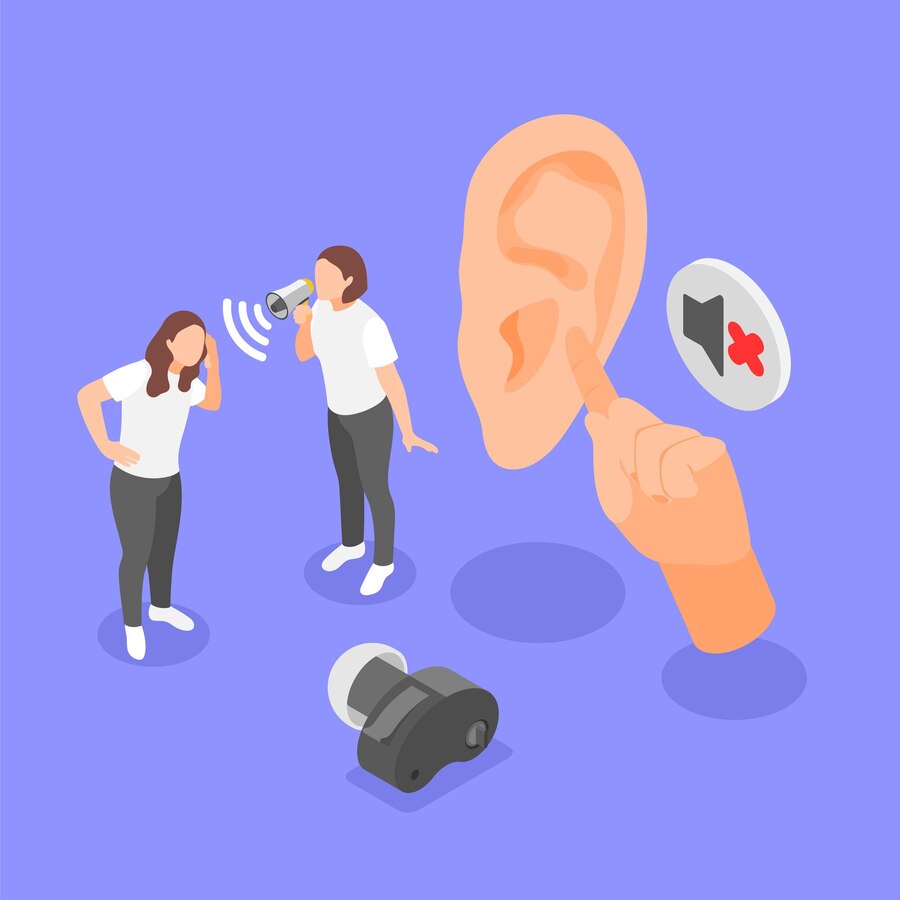
Hearing is a vital part of our daily lives, allowing us to communicate, enjoy music, and stay aware of our surroundings. However, hearing loss can develop gradually, making it difficult to recognize the early signs. Identifying hearing loss early can help prevent further deterioration and improve quality of life. In this blog, we will explore the common signs of hearing loss and when to seek professional help.
Common Signs of Hearing Loss
Hearing loss can manifest in various ways, depending on its severity and cause. Here are some common signs that indicate a potential hearing problem:
- Frequently Asking People to Repeat Themselves
If you often find yourself saying, “Can you repeat that?” or “What did you say?” during conversations, it may be a sign that you are not hearing speech clearly. This is particularly noticeable in noisy environments where background noise makes it even harder to understand speech.
- Difficulty Following Conversations in Noisy Settings
Struggling to hear people in crowded places like restaurants, shopping malls, or social gatherings is a common early sign of hearing loss. Background noise can make it difficult to distinguish speech from other sounds, leading to frustration and social withdrawal.
- Turning Up the Volume on Devices
If family members or friends frequently complain that the TV or radio is too loud, it might indicate that you are compensating for hearing loss by increasing the volume. If you consistently need higher volume levels, it is worth having your hearing checked.
- Misunderstanding Words or Sentences
Hearing loss can affect your ability to distinguish between similar-sounding words. For example, you might hear “cat” instead of “hat” or “fifty” instead of “sixty.” This can lead to confusion and miscommunication in conversations.
- Ringing or Buzzing in the Ears (Tinnitus)
Persistent ringing, buzzing, or hissing sounds in the ears, known as tinnitus, can be an early warning sign of hearing damage. Tinnitus is often associated with noise-induced hearing loss and should not be ignored.
- Avoiding Social Situations
If you find yourself avoiding social gatherings, phone calls, or group discussions because it is too difficult to follow conversations, it could be a sign of hearing loss. Many people withdraw from social interactions due to frustration or embarrassment about their hearing difficulties.
- Struggling with Phone Conversations
Phones lack visual cues like lip-reading, making it harder to understand speech. If you frequently struggle to hear callers or need to put your phone on speaker mode to understand conversations, it may be time for a hearing evaluation.
- Feeling Exhausted After Listening
People with hearing loss often experience listening fatigue because they need to work harder to understand speech. If you feel mentally drained after long conversations, your brain might be compensating for reduced hearing ability.
- Difficulty Hearing High-Pitched Sounds
Hearing loss often affects high-frequency sounds first. If you struggle to hear birds chirping, doorbells, alarms, or children’s voices, this could be a sign of early hearing loss.
When to Seek Professional Help
If you notice one or more of these signs, it is essential to consult a hearing specialist or audiologist. Here are some situations where seeking help is strongly recommended:
- Symptoms Persist for More Than a Few Weeks – Temporary hearing issues due to colds or infections usually resolve on their own. However, persistent hearing difficulties require evaluation.
- Hearing Loss Affects Your Daily Life – If hearing problems interfere with work, relationships, or social interactions, professional intervention can improve your quality of life.
- Sudden or Rapid Hearing Loss – A sudden loss of hearing, especially in one ear, could indicate a serious medical condition and requires immediate attention.
- Family History of Hearing Loss – If hearing loss runs in your family, regular check-ups can help detect early signs and prevent further deterioration.
- Tinnitus or Ear Pain – Chronic ringing, buzzing, or pain in the ears should not be ignored, as these symptoms can indicate underlying hearing problems.
What to Expect During a Hearing Test
If you decide to visit a hearing specialist, they will conduct a series of tests to evaluate your hearing ability. A typical hearing evaluation includes:
- Physical Examination – Checking for any blockages, infections, or abnormalities in the ear.
- Hearing Tests – Audiometry tests measure how well you hear different frequencies and volumes.
- Speech Recognition Tests – Assessing how well you understand spoken words in quiet and noisy environments.
- Tympanometry – Evaluating the function of the eardrum and middle ear.
Based on the results, your audiologist may recommend treatment options such as hearing aids, medical treatment, or lifestyle changes to improve your hearing health.
Conclusion
Hearing loss can significantly impact your daily life, but early detection and treatment can help you regain confidence and maintain healthy communication. If you recognize any of the signs mentioned above, don’t hesitate to seek professional help. A simple hearing test can make a world of difference in improving your quality of life and preventing further hearing deterioration.
If you or a loved one suspects hearing loss, schedule a hearing evaluation today and take the first step toward better hearing health!
